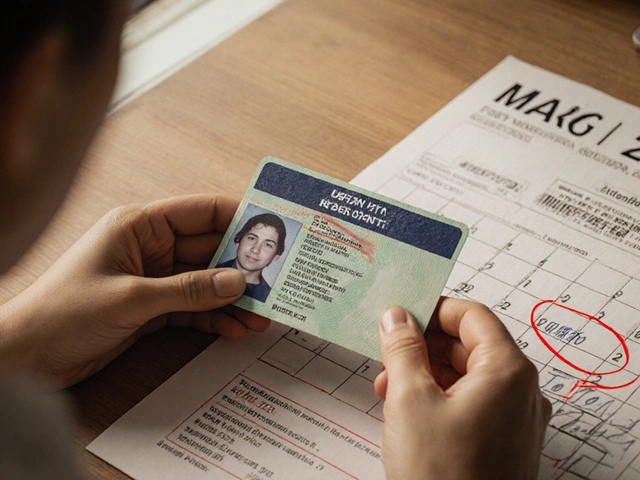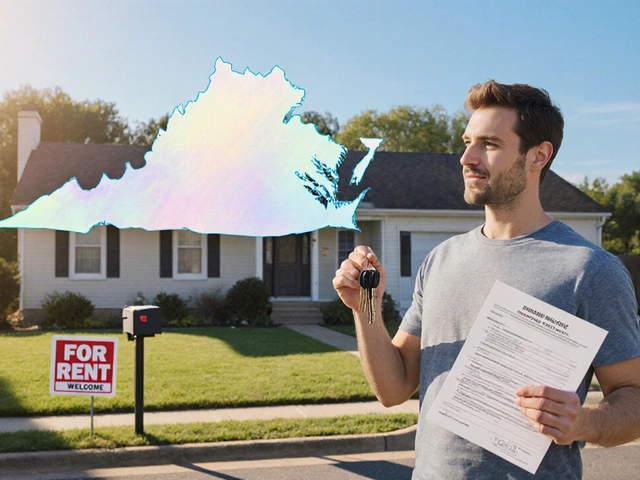Ever wondered if you need a license to manage properties in Maryland? Well, let's clear that up. In Maryland, you do indeed need to be licensed if you're going to manage someone else's properties and get paid for it. This means having a real estate broker's license. It's not just a fancy credential; it's a legal requirement.
The laws here aren't just for show—they're there to ensure property managers are well-trained and can handle the responsibilities professionally. Without a license, you could find yourself in a heap of legal trouble. So, understanding this requirement is a big deal if you're in—or interested in—the property management game.
- Maryland Licensing Requirements
- Role of a Property Manager
- Legal Consequences
- Steps to Obtain a License
- Tips for Aspiring Property Managers
Maryland Licensing Requirements
So, let's get straight to it: if you're thinking about managing properties in Maryland, having a license isn't just a suggestion—it's the law. To legally manage properties and earn from it, you must have a Maryland real estate broker's license. This ensures that you're equipped with the knowledge and skills to handle the responsibilities effectively.
Why a License?
The license is crucial because it helps maintain industry standards and protects both property owners and tenants from potential mishaps. It's like having a seal of trust, showing you know what you're doing.
Getting Licensed
Obtaining a broker's license involves a few steps:
- Pre-licensing Education: You need to complete 135 hours of approved real estate courses. These courses cover everything from real estate law to practical management tips.
- Pass the Real Estate Exam: After your coursework, you'll have to pass the official state exam. It's a test to make sure you've actually absorbed all that knowledge.
- Apply for the License: Once you pass the exam, the next step is to apply for your license with the Maryland Real Estate Commission. Keep an eye on deadlines and fees!
Staying Licensed
Getting your license isn’t a one-and-done deal. You’ll need to renew it regularly, and that means staying up to date with any continuing education requirements. Think of it as a way to stay sharp and keep learning.
Here's a quick look at what you might expect concerning the license renewal process every two years:
| Requirement | Details |
|---|---|
| Renewal Period | Every 2 years |
| Continuing Education | >15 hours |
| Renewal Fee | Approx. $70 |
Skipping these steps can lead to penalties that are often steeper than the sea cliffs of Dover. So, if you're in this business, stay on top of these requirements or get ready to face the music!
Role of a Property Manager
So, what exactly does a property manager do, especially in a place like Maryland? It goes beyond just collecting rent and making sure things don't fall apart. Their role is multi-faceted and can vary depending on the size and type of property they manage.
Key Responsibilities
Managing properties involves quite a few key responsibilities. Here are some essential tasks:
- Rent Collection: This isn't just about knocking on doors. Modern property management often involves handling online payment systems, following up on late payments, and sometimes even negotiating payment plans.
- Tenant Management: It includes everything from screening potential tenants to handling tenant complaints and coordinating lease agreements. A good manager can make or break the tenant experience.
- Maintenance and Repairs: You need to ensure everything from plumbing to power is working smoothly. Property managers coordinate regular maintenance and unexpected repairs.
- Financial Reporting: Keeping clear records of income and expenses is crucial. Regular reports are often expected by property owners to evaluate the property's performance.
Why is Licensing Important?
Having that real estate broker's license in Maryland is crucial for holding these responsibilities. A license signifies that the property manager knows the legal ins and outs and ensures ethical management practices. Plus, it sets a standard for accountability.
Interesting Fact
According to a survey of property managers across the United States, those with a license tend to handle a larger number of properties. This shows how licensing can open doors and expand business opportunities for aspiring managers.

Legal Consequences
Skipping the licensing process might seem tempting, but it's a risky move. In Maryland, managing properties without a proper license isn't just bending the rules—it's breaking them. The state takes these regulations seriously, and the legal consequences can be quite severe.
If caught, unlicensed property managers could face hefty fines. These aren't your everyday parking ticket amounts; we're talking substantial penalties that can significantly hit your wallet. And it doesn't stop there.
Besides fines, working without a license jeopardizes your professional reputation. Word travels fast in real estate circles, and being known for not playing by the rules isn't the best career move. This could also potentially make you liable for any mishaps or disputes that arise on the properties you manage.
Possible Legal Penalties
- Fines: Expect to pay significant amounts if caught. The exact fine varies depending on the severity and nature of the offense.
- Legal Action: Tenants or property owners may decide to take legal action against you, putting you in a difficult and potentially costly situation.
- Professional Damage: Operating without a license can harm your reputation, making it much harder to gain clients in the future.
It's clear that overlooking the property manager license requirements isn't worth the trouble. If managing properties in Maryland is your path, ensuring you adhere to the legal stipulations is just good practice. Play it safe, stay licensed, and handle business the right way.
Steps to Obtain a License
So you're thinking of becoming a property manager in Maryland? Great choice; let's talk through the steps you'll need to snag that all-important license.
1. Meet the Basic Requirements
First, you've got to be at least 18 years old and have a high school diploma or equivalent. That's the starting line for most licensing in Maryland.
2. Complete Pre-Licensing Education
You can't just skip into the manager's chair. Maryland requires you to complete a 60-hour real estate pre-licensing course. This covers everything from property laws to ethics, and it's there to make sure you know your stuff.
3. Pass the Real Estate Exam
After finishing the course, you'll need to pass the Maryland real estate exam. It's a two-part test that covers both state and national real estate laws.
4. Choose a Brokerage
Next, you'll need to hang your license with a real estate brokerage. It connects you with a larger network and gives you a place to learn and grow.
5. Apply for Your License
Finally, complete the licensing application via the Maryland Real Estate Commission’s website. There’s a fee attached, so have your wallet handy.
Once all these steps are under your belt, you're ready to officially step into the world of property management. Remember, keeping that property manager license in good standing involves continuing education, so stay updated with any new real estate laws or trends.

Tips for Aspiring Property Managers
Thinking of becoming a property manager in Maryland? Great choice! But before you dive in, there are a few things you should know and do to set yourself on the right track. Here are some solid tips to help you get started.
1. Get the Right Education
Education is your first step. To meet the licensing requirements in Maryland, you'll need to complete some essential courses. These typically cover the fundamentals of real estate, property laws, and ethics. Many community colleges offer this, or you can find plenty of online options.
2. Pass Your Licensing Exam
Once you've done your education, the next step is passing the licensing exam. It's a bit of a challenge, but studying hard and taking practice tests can really help. Look into resources that focus on Maryland property manager license exams specifically—they're gold.
3. Gain Experience
Experience is a game-changer. Try to get a role that lets you work under a certified property manager. This hands-on experience will prepare you for the daily tasks and challenges you'll face once you go on your own.
4. Network Effectively
Build your network! Engage with other property manager professionals, attend industry seminars, and join local real estate groups. Networking isn't just about job opportunities; it’s also about learning from others and keeping up with industry trends.
5. Keep Learning
Even after you get your license, never stop learning. Laws and practices change, and staying updated is crucial. Some states, including Maryland, require continuing education credits to keep your license active.
Key Stats
| Aspect | Details |
|---|---|
| Minimum Age | 18 years |
| Required Hours of Education | 60 hours |
| Exam Fee | Approximately $60 |
Remember, the property management world revolves around reliable service. Being committed will help you succeed in Maryland's competitive market. Keep these tips in mind, and you're on your way to making a positive mark in this field!





